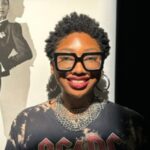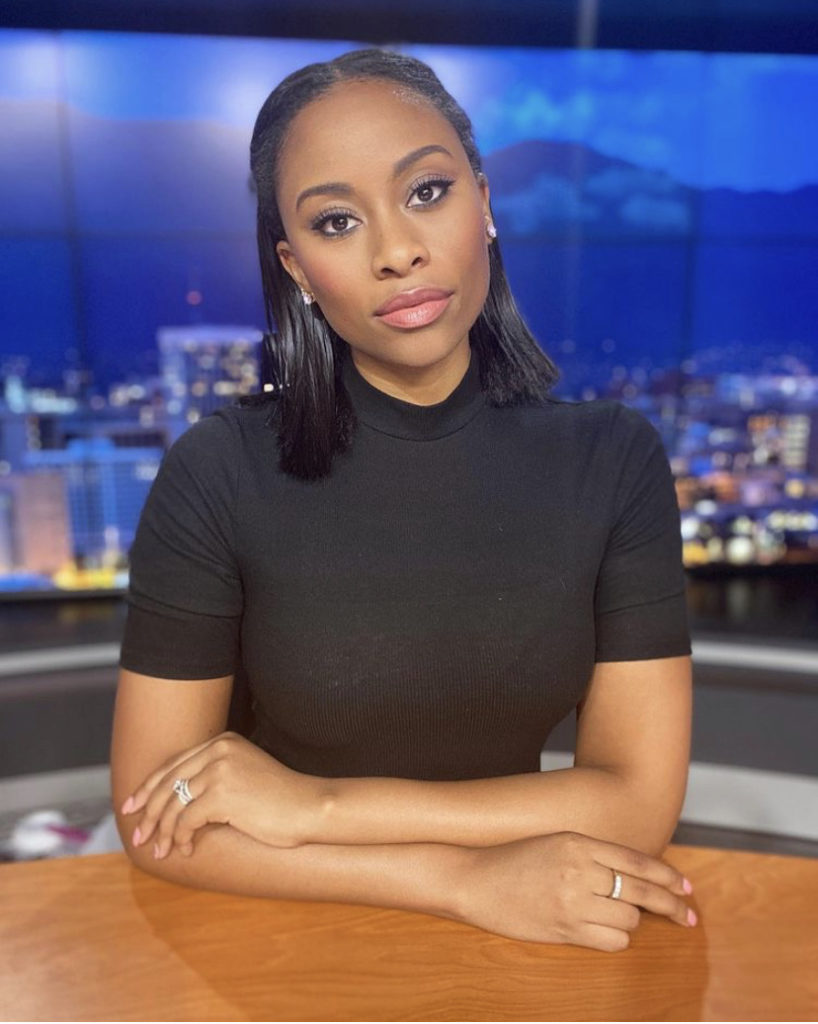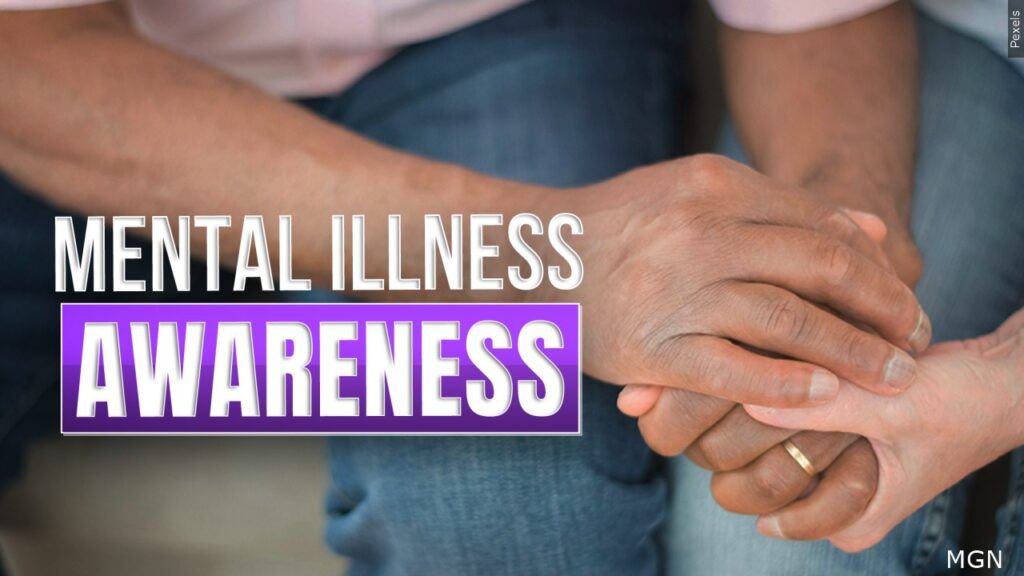On a blazing Saturday afternoon, applying makeup is the last worry to the citizens of Tucson, Ariz. For Taja Davis, however, it’s a job requirement. She’s a weekend news anchor for ABC’s KGun 9.
Davis kicks off the weekends with her face regimen of Cetaphil cleanser and witch hazel. Although the average woman may stop here, Davis has just begun her daily skin routine. To take this regime to the next level, Davis uses her own face as a glamorous canvas. She first preps the skin with an Elf primer, followed by her BeautyCounter’s foundation for an even look. To entice the viewers, she applies concealer, eyebrows, eyeshadow, mascara, lashes, bronzer and her signature cat eyeliner. Finally the artist tops her look with setting spray, to ensure her masterpiece won’t budge under the heated studio lights.
According to a study conducted by the University of Duisburg- Essen, professional women with makeup are viewed as more competent than those without. Furthermore, Lean In concluded that 40% of Black women say they need to provide more evidence of their competence, compared to 28% of white women and 14% of men. While makeup can be a confidence booster to most, Black professional women have a different psychological response toward slaying their face everyday.
“What I look like should not determine how you take the words that come out of my mouth,” Davis said.
While viewers are catching up with the daily news, they’re also getting a front row seat to Davis’ artistry. Although she appreciates the art of makeup, the news anchor dislikes actually wearing many products.
During the week, the anchor serves as a reporter. This gives Davis a break from her full face glams. She says she only applies makeup during her reporting days if she’s going live. Even still, Davis’ anchor glam requires more attention than her reporting looks.
“There’s definitely days where I’m like ‘I don’t feel like doing this right now,’” Davis said “Those days it’s very light makeup, but just enough to get me by and feel comfortable with being on air.”
Davis prides herself on her makeup application, but not as much as she does her radiant skin. She says she’s less inclined to wear makeup on her off days. Although she does get positive reactions when wearing makeup, she still receives admiration even when she decides to ditch the products.
“I don’t need it. I’m pretty comfortable in my skin” Davis said “ Makeup enhances my beauty, but I don’t need it to feel beautiful.”
Moreover, not everyone’s makeup application is rooted from self love. Makeup can act as a chameleon to whomever it sees fit. The Journal of Cosmetic Science categorized makeup as fitting two needs, camouflage and seduction. Depending on how a person feels about themselves, they may believe makeup can fix their impurities.
“I think sometimes it comes from earlier experiences of acceptance or rejection,” said Dr. Afiya Nbilishaka, a Clinical Psychologist and hairstylist. “To be attractive privileges you in this society.”
As a clinical psychologist, Dr. Nbilishaka’s work includes the assessment and diagnostic on mental health disorders. She believes gender politics play a role in the way makeup wearers can view themselves. She says people who are rated as being attractive tend to make more money and are granted more educational opportunities.
Similar to being a psychologist, Dr. Nbilishaka also challenges beauty myths in the salon. At the salon she refrains from using any chemicals or add-in hair on her clients. While at the office, Dr. Nbilishaka believes the key to mental health is self knowledge by emphasizing the association to eurocentric standards of beauty.
“It induces stress having to wear makeup as a part of your uniform because it’s implied that the way that you look is not up to code.” Dr. Nbilishaka said.
She believes the media perpetuates unrealistic norms that can only be reached with the purchasing and application of cosmetics. The psychologist also worries about professional women’s skin care. She says products applied onto skin could enter the bloodstream faster than if ingested. She recommends her clients use hair and skin products they are able to eat.
The Cogent Psychology study reports that makeup makes women feel smarter. The lipstick effect, which is the theory that when facing an economic crisis women will buy lipstick to feel better, also suggests how women wed their emotional well-being to beauty.
On a normal workday Tenikka Jones’ job consists of representing clients by attending court proceedings, drafting motions and applying her daily makeup glam.
Jones is an attorney based in Miami, Fla. She views herself as a natural makeup wearer. With just a minimal eyeshadow, bronzer and lip gloss, Jones is prepared to take on the day. She believes applying makeup helps her navigate through a male dominated field.
“Whatever [we] need to make us feel confident and say ‘I can go toe to toe with any of my male counterparts’, we should do it,” Jones said.
The attorney believes makeup in the legal field can cost an attorney their credibility.
“You can be right on the money and absolutely correct in your legal argument, legal reasoning and analysis but if you don’t look the part people find it harder to believe you,” Jones said.
Although Jones always tries her best to look the part, she can only imagine how her coworkers may respond to her rocking a bare face. She’s sure they won’t confront her upfront, instead professional microaggressions may take place. She says if she doesn’t look a certain way, then her coworkers may not invite her to any other client meetings or hearings.
In sum, it is difficult for Black women to navigate through the professional field without continuously hitting the glass ceilings of corporate America. Nonetheless, they are still overlooked in terms of identity because their identity is not within the standards of a White society.













